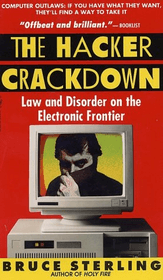While preparing my ‘Thinking Aloud’ seminar on Academic Commons, I was pleased to see that the Wikipedia entry for Open Educational Resources notes:
What has still not become clear by now to most actors in the OER domain is that there are further links between the OER and the Free / Libre Open Source Software (FLOSS) movements, beyond the principles of “FREE” and “OPEN”. The FLOSS model stands for more than this and, like e.g. Wikipedia, shows how users can become active “resource” creators and how those resources can be re-used and freely maintained. In OER on the other hand a focus is still on the traditional way of resource creation and role distributions. [my emphasis]
As it happens, this is a significant interest of mine and one I touch upon in a forthcoming book chapter I contributed to. We conclude:
The idea of student as producer encourages the development of collaborative relations between student and academic for the production of knowledge. However, if this idea is to connect to the project of refashioning in fundamental ways the nature of the university, then further attention needs to be paid to the framework by which the student as producer contributes towards mass intellectuality. This requires academics and students to do more than simply redesign their curricula, but go further and redesign the organizing principle, (i.e. private property and wage labour), through which academic knowledge is currently being produced. An exemplar alternative organizing principle is already proliferating in universities in the form of open, networked collaborative initiatives which are not intrinsically anti-capital but, fundamentally, ensure the free and creative use of research materials. Initiatives such as Science Commons, Open Knowledge and Open Access, are attempts by academics and others to lever the Internet to ensure that research output is free to use, re-use and distribute without legal, social or technological restriction (www.opendefinition.org). Through these efforts, the organizing principle is being redressed creating a teaching, learning and research environment which promotes the values of openness and creativity, engenders equity among academics and students and thereby offers an opportunity to reconstruct the student as producer and academic as collaborator. In an environment where knowledge is free, the roles of the educator and the institution necessarily change. The educator is no longer a delivery vehicle and the institution becomes a landscape for the production and construction of a mass intellect in commons. ((Neary, M. with Winn, J. (2009) ‘Student as Producer: Reinventing the Undergraduate Curriculum‘ in M. Neary, H. Stevenson, and L. Bell, (eds) (2009) The Future of Higher Education: Policy, Pedagogy and the Student Experience, Continuum, London))
I’d be interested in discussing these ideas with anyone who has similar interests. I don’t doubt I have a lot to learn from others.
Having been part of the open source community for the last eight years, I am utterly convinced there’s a lot to learn from the collaborative and highly productive social and creative processes that allow software developers, documentation writers and application end-users to work together so effectively. Over decades, they have developed tools to aid this process (mailing lists, IRC, revision control, the GPL and other licenses, etc.). Isn’t it time that more of us worked and learned in this way? Creative Commons is our license to do so; the Internet is our means of connecting with others. The tools are mostly available to us and where they are inappropriate for our discpilines, we should modify them. In the FLOSS community, knowledge is free and the community is thriving.
As the Wikipedia OER article states, the transmission of knowledge from teacher to learner is slowly being freed, but the social processes of knowledge production remain largely the same. Students are still largely positioned as consumers of knowledge and the hierarchical relationship between teacher and learner is increasingly contractual rather than personal. There are exceptions, I know, but there are few genuine opportunities for teacher and learner to work together productively, especially on a group scale. Institutions, like my own, are making some efforts to change the ‘Learning Landscape’ but I don’t think it is necessarily an institutional responsiblility. It’s the responsiblity of individuals (especially in an environment so relatively loosely controlled as a university) to work out the social relations and processes of peer production for themselves, looking for support from others when they need it.
How can the model by which the FLOSS community works so productively and openly be translated to every academic discipline and change the way that knowledge is both produced and transmitted? Technology is at this core of this enterprise and I suspect many teachers and learners feel alientated and divided by it.
By the way, here’s my Thinking Aloud presentation.
